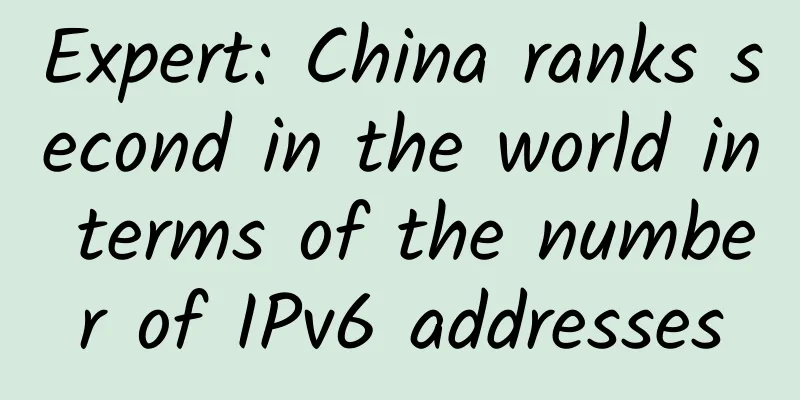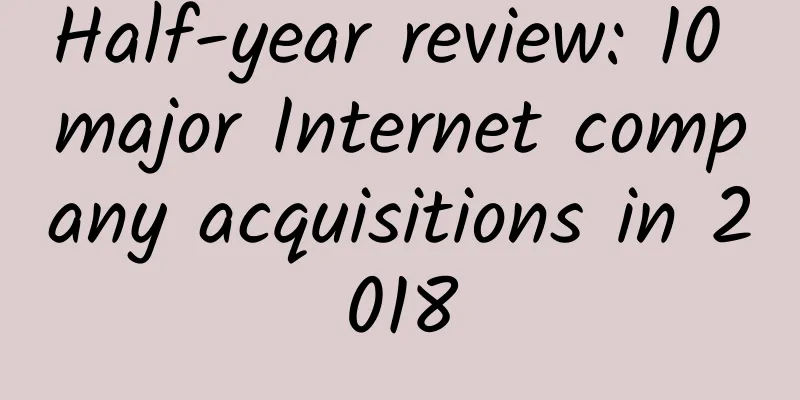Expert: China ranks second in the world in terms of the number of IPv6 addresses

|
The global Internet Protocol (IP) address allocation is transitioning to the next generation Internet based on IPv6. Experts from the Asia-Pacific Internet Network Information Center said at the 2018 Global Next Generation Internet Summit that the United States currently ranks first in the world in terms of both IPv6 and IPv4 addresses, while China ranks second in the world in terms of both types of addresses. IPv6 is the abbreviation of "Internet Protocol Version 6". It is the next-generation Internet core protocol designed by the Internet Engineering Task Force to replace the current "Internet Protocol Version 4" (IPv4). As one of the world's five major regional Internet registries, the Asia-Pacific Network Information Center is responsible for the allocation and management of IP addresses and related resources in the Asia-Pacific region. Pan Guangliang, the director of registration services of the center, said in a report on the 22nd that the IPv4 version of the Internet Protocol addresses has been allocated out in general. As of December 2017, there was less than one Class A IPv4 address left in the world's five major regions, and the African Network Information Center, which has the largest number of remaining addresses, had only 0.76 remaining. IPv6 address allocation has thus entered the "fast lane". According to statistics from the world's five major regional Internet registries, as of December 2017, more than 90% of member units in Latin America and the Caribbean have both IPv6 and IPv4 addresses, the highest proportion in the world; and in Africa, where this proportion is the lowest, about 43% of member units have both IPv6 and IPv4 addresses. "For the total number of IPv6 protocol addresses, the ones that have been allocated are just a drop in the ocean, so we don't need to worry about running out of IPv6 addresses, but how to use them well," said Pan Guangliang. Currently, the top five countries with the most IPv6 addresses are the United States, China, the United Kingdom, Germany and France. Pan Guangliang predicts that more IP addresses will be allocated to China in the next few years, and "in the future, the number of IPv6 addresses owned by China may exceed that of the United States." |
<<: How will the two major operators' competition to upgrade IPv6 affect me?
>>: Stop shouting slogans, how to implement IPv6? Operators give details
Recommend
Can IPTV also have a nationwide network?
IPTV is good, everyone knows it! The number of IP...
How to avoid the pitfalls of integrated wiring?
There is a lot of knowledge involved in integrate...
A comprehensive guide to IP addresses
IP address is a term that everyone is familiar wi...
[11.11] LOCVPS: 30% off on all VPSs/50% off on some VPSs, 50 yuan bonus for 300 yuan top-up, KVM/XEN multiple computer rooms available
LOCVPS (Global Cloud) officially launched the Dou...
What is the difference between artificial intelligence and machine learning?
【51CTO.com Quick Translation】 Artificial intellig...
Efficient transfer tips, revealing the pros and cons of Rsync and SCP, helping you make a wise choice!
In daily operation and maintenance work, file tra...
“Unlimited” is just a cover. Which data card is the most cost-effective?
In order to use more affordable mobile data, I be...
Cloud services are becoming the dominant force in enterprise network traffic
Cloud services are accounting for an increasing p...
Gather: A method to optimize the number of control flow tables in SDN networks with in-band control
1. Introduction In-band SDN networks have attract...
Should operators delay 5G deployment plans until 2021?
In 2020, the sudden outbreak of COVID-19 is havin...
How does your domain name become an IP address?
[[420883]] This article is reprinted from the WeC...
There have been three waves of "network withdrawal" around the world. When will domestic operators complete the withdrawal of 2/3G networks?
Recently, Ericsson released the ten-year special ...
Kunpeng Ecosystem Changhong Tiangong System Application Demonstration Project Officially Landed in Mianyang
[51CTO.com original article] On December 18, 2019...
Think about these three details clearly, and your Internet of Things will be truly implemented!
[51CTO.com original article] The Internet of Thin...
Why do base stations need to go to the sky?
Over the past few decades, mobile communication t...




![[6.18] Hengchuang Technology Flash Sale: Hong Kong cloud server starts from 262 yuan/year, Hong Kong/US independent server starts from 800 yuan/month](/upload/images/67cac336252f9.webp)




